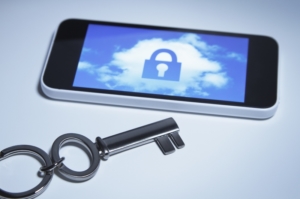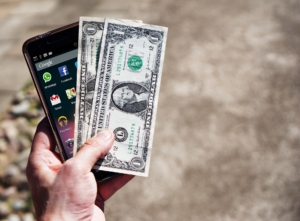Are You Addicted to or Distracted by Your Phone? Here’s How to Stop It
I love my phone. I HATE MY PHONE. No really, I love my phone. Actually, I HATE my phone.

This post might be a bit off-topic from my usual security stuff, but dealing with one’s phone addiction does help with your security and privacy as well. All of these pop-ups, bells – whistles, and distractions emanating from our devices make it hard to tell what’s legitimate and what’s attempted fraud. Turning off all of the unnecessary alerts we get, will facilitate our ability to focus on what’s real and fake. Read on.
Phone addiction and how to quit
Most of the people out there know about the tricks that an advertiser or app developer might play when they try to get the attention of a consumer. What you don’t realize, however, is that our phones and digital devices are doing things like this automatically, even insidiously and you are probably engaging with them more than you want to, and definitely more than you should.
It’s distracting, it affects our attention to others, relationships, connecting to others, our sex life, our sleep, our job performance, and even our wallets. Frankly, upon understanding what’s happening, this should upset you.
One of the things that phone designers do is use certain colors for notifications: like red or blue. Why? Because certain colors are known to create an emotional response, and this makes us want to click or swipe. This emotional response also can make us feel like we suffer from phone addiction, or feel like we are attached to what our phones give us.
Don’t get caught up here, though. Here are some tips on how to quit phone addiction:
Turn Off Notifications
There is no doubt that notifications can be helpful, and in some cases, they can actually be very important. However, the majority of notifications are not. These are all designed to get people to interact with the app. For example, many people notice that when they get a Facebook notification that someone has posted to their wall, they immediately want to check it. But you could be interrupting something important. So, turn off notifications and check the apps when you have the time.
I suggest turning off everything. And slowly turn on notifications only when you believe you really, absolutely, positively need them.
Unsubscribe and Delete
Delete every app you don’t need. Unsubscribe from every email coming in that is not a necessity. Be ruthless. All of these apps and unwanted emails are another reason to turn your head left or right, up or down requiring the use of your hands and fingers to do something that you shouldn’t be doing. Your focus is sacked every time these communications come in.
Look at Screen Time
This will definitely upset you. You can look at your settings and see how much time you are spending on certain apps. You can easily set this up to be notified. Now, this is an additional distraction, but it’s also going to tell you what activities you do on your phone are helpful and which are not.
Change Colors
We have mentioned that color can play tricks on our minds, and app developers know this. So, think about removing the colors from your phone and changing it to grayscale. You can do this, for instance, on the iPhone, in the settings app.
Clean Off Your Home Screens Apps
You also might want to think about cleaning up your home screen. The only apps you might want to keep on your home screen are things that you really need, like your map app, your email, your banking app, and your calendar. Everything else (even email) should be put on another screen.
Stop Tapping and Type Instead
Try this. Try to get into the habit of typing what you are looking for in the search box of your phone. It is easy to simply tap an app to open it; it is much more difficult to type in the name of the app…and this gives you a second to really think about if you want to open the app or not.
Take Social Media Apps Off of the Device
You also might want to delete the social media apps off of your phone if you have a problem there. You might be shocked if you look at how many hours per week, or even day, you are spending on these apps. DELETE FACEBOOK AND TIKTOK. NOW! In my PodBroadcast “The Security Guy and CIA Spy” Peter and I discuss how social media is messing with our mental health. Social media and phone addiction are no joke.
Charge Your Phone Away from the Nightstand
Finally, utilize the “focus” settings on the iPhone, a.k.a. “Do Not Disturb”. For you android users figure it out HERE. Most of us charge our phones at night, and in general, they sit on our nightstands. This makes it very easy to grab it at any time, especially when you wake up in the morning. So, consider charging it somewhere else.
Written by Robert Siciliano, CEO of Credit Parent, Head of Training & Security Awareness Expert at Protect Now, #1 Best Selling Amazon author, Media Personality & Architect of CSI Protection Certification.

 Tracking Cell Phones: The Legal Stuff
Tracking Cell Phones: The Legal Stuff  For now, we have to figure out a way to keep this appendage juiced up without being lured into a data-sucking battery-charge station.
For now, we have to figure out a way to keep this appendage juiced up without being lured into a data-sucking battery-charge station. This works by getting information about you, such as your birthday, address, or even the last four digits of your
This works by getting information about you, such as your birthday, address, or even the last four digits of your 























